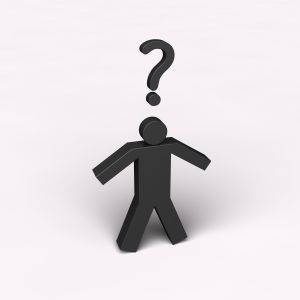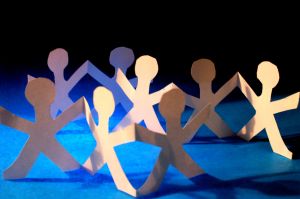If you’re reading this, you’re surprising me. I won’t post this on Crosswalk or Christianity.com. I won’t send out a notice to 400 readers telling them it’s here. As far as I know, no one will ever know this is here.
So if you’re here, it’s just you and me, baby.
Which, let’s face it, means it’s pretty much just me. People are so busy. And this is, after all, a blog.
Like people have time to read blogs.
It’s 9:30 p.m. here in California. Dark. Cold. (Well, to us. It’s maybe 50 degrees.) Cat’s asleep on the couch. Nat King Cole’s Christmas album is on the stereo. I’m in my office, on the gratifyingly huge leather chair we bought for $200 from a 42-year-old former champion moto-coss bicycle rider who lives with his parents. Nice guy. Bought the chair through an ad he’d run on Craigslist. He sold the chair for so little (the thing is gorgeous) because his newly divorced wife loved it–as did their cat, who left little claw marks all over it. I love the cat claw marks on it. I would have paid more for those.
Anyway. Here I am.
My office just now is strewn with the open books I’ve lately been pouring over relative to the work I’ve been doing on this new book I’m writing with Steve Arterburn. It makes me feel brainy to have open encyclopedia volumes and study Bibles and all kinds of reference books lying about. I think for awhile I’ll keep them where they are. I like feeling brainy.
So here’s a few ideas with which I’ve lately been obsessed:
Cynacism is the easiest attitude in the world to adopt. It protects you from everything, and never dissapoints.
Faith and hope aren’t just virtues; they’re the virtues upon which all other virtues depend. You can’t be honest, kind, loving, caring, optimistic and compassionate if you don’t first have faith and hope.
The degree to which a person has faith and hope depends entirely upon the degree to which that person consciously experiences the excercising of his or her own free will. You do feel as much hope and faith as you do freedom; you do feel as much cynacism, anger and depression as you do that you are trapped.
It’s so easy (and even natural) to feel victimized, to feel that you’re just responding to life. But that’s never it. While we can’t always choose what does happen to us (though we can certainly have a lot more to do with that than we typically believe we can) we can always and ultimately choose how we’re going to react to whatever “happens” to us. That can’t be taken away. That choice–to either be positive or negative–is at the core of who we are.
It’s God’s singular gift to us. It’s his defining gift to us.
And why is that gift so critical to who we are, to whom God wants us to be relative to him? Because God wants us to choose to love him.
First he wants us fully empowered–fully free, fully independent–and then he wants us to choose to love him.
Then we bring him all we have, all we are, all we know it’s possible for us to be.
Then we meet life open-hearted, inspired, excited, fresh, optimistic. Then–when we are free, when we are in control of our power to always choose how we want to respond to whatever happens or comes our way–we can claim, as our own, true faith, and true hope.
Faith and hope aren’t about knowing everything is going to be okay. They’re about knowing that, by virtue of our free will, things are okay.
I don’t think God wants us to believe that one day all will be well. I think that’s where so much of modern Christianity has it soooooooo wrong. I think what God wants is for us to understand that, if we but will ourselves to understand it, all is well.












